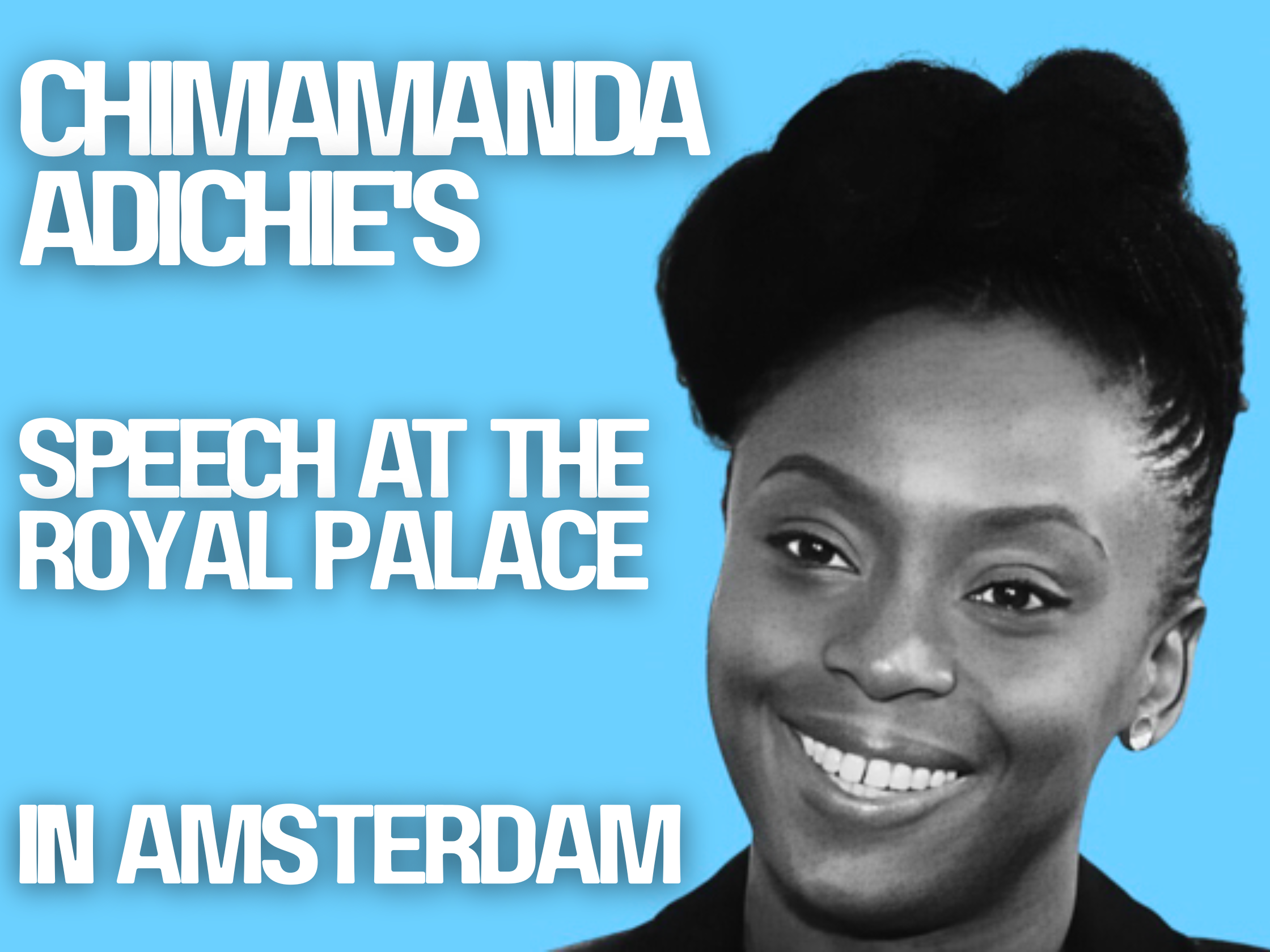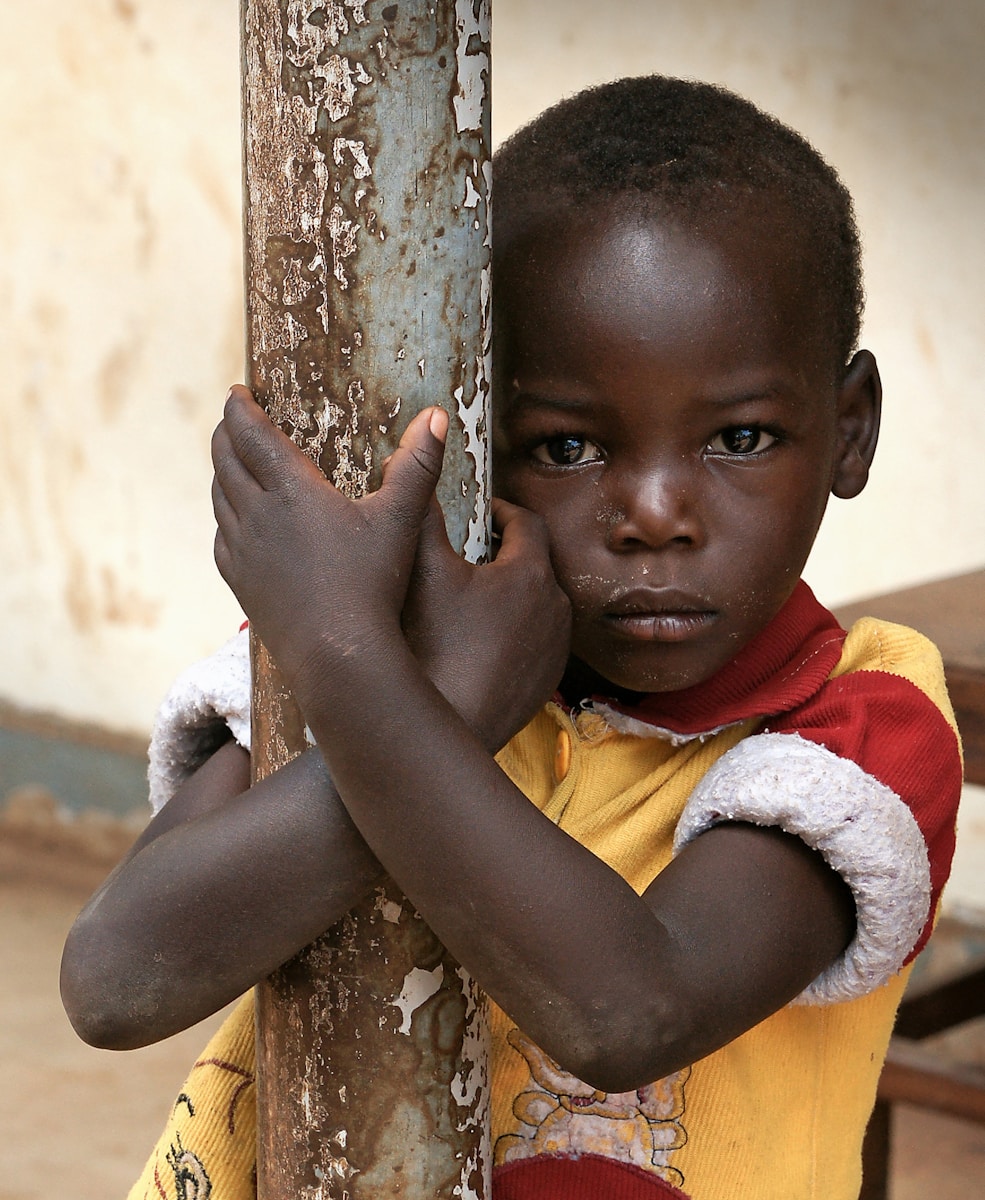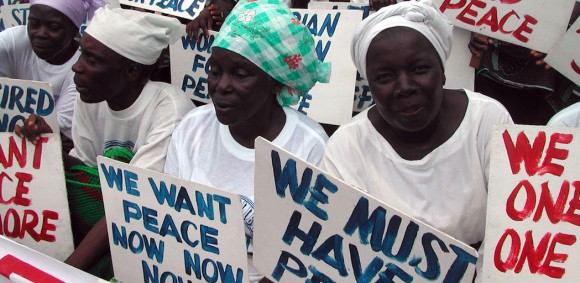Chimamanda Adichie delivered a moving speech at the Royal Palace in Amsterdam, calling for unity and dialogue in times of rising hate and violence. Her words echoed far beyond the palace walls, sparking reflection and hope.
Cultural Connection
In her address, Chimamanda Adichie emphasized the power of human connection across cultures. She encouraged audiences to come together, listen, and learn from each other — a direct response to the growing divisions around the globe.
A Global Peace Advocate
At the heart of Chimamanda Adichie‘s message was a strong plea for peace. She warned against the normalization of hate and violence, stressing that even the smallest acts of openness and empathy can challenge global hostility.
Amsterdam: A Symbol in Adichie’s Words
Chimamanda Adichie praised Amsterdam for its historical openness and diversity. She called the city a “center of energy” where people meet, exchange ideas, and feel a sense of belonging — making it the perfect stage for her message.

Confronts Global Hatred
Referencing a world filled with missiles and mass murder, Chimamanda Adichie directly challenged the audience to not retreat into fear or tribalism. Instead, she proposed interaction and dialogue as the antidotes to extremism.
“Let’s Mingle and Meet”: Adichie’s Key Message
The five powerful words — “Let’s mingle and meet” — captured the essence of Chimamanda Adichie’s speech. In an age of virtual isolation and cultural echo chambers, her call was both simple and revolutionary.
Champions Open Conversation
Rather than avoiding difficult discussions, Chimamanda Adichie encouraged open, respectful exchanges. She argued that change starts with talk, and the courage to face disagreement without hostility.
Empathy as Resistance in Adichie’s Narrative
Empathy, according to Chimamanda Adichie, is an act of resistance. In a polarized world, choosing to understand others becomes a radical political stance. Her words serve as a reminder that kindness remains a powerful weapon.

Calls for Humanizing the “Other”
During her speech, Chimamanda Adichie challenged the audience to go beyond media stereotypes and humanize those labeled as “the other.” She stressed that storytelling, when done honestly, helps bridge the gap between unfamiliar cultures and identities.

the Power of Physical Presence
“Being physically present with one another changes everything,” said Chimamanda Adichie. She highlighted how real connection happens through shared space, gestures, and spontaneous conversation—elements often lost in digital interactions.
Adichie Warns Against Echo Chambers
Chimamanda Adichie warned against echo chambers, where people hear only voices that mirror their own. She cited recent studies from Pew Research Center to show how online isolation contributes to polarization. Her antidote: real-world engagement across divides.

Inspires Next Generation of Thinkers
Young people were a key focus for Chimamanda Adichie. She encouraged students, artists, and young leaders to take initiative in creating inclusive platforms for dialogue, cultural understanding, and transformative change.
the Legacy of Amsterdam
In linking her message to Amsterdam’s legacy, Chimamanda Adichie highlighted the city’s tradition of tolerance and progress. This aligns with our own recent coverage in Mauritius Press Freedom Index 2025, emphasizing how open societies foster safer civic discourse.
the Crowd Inspired
The audience left with a renewed sense of purpose. Chimamanda Adichie had not just delivered a speech — she had sparked a movement. Her call to “mingle and meet” echoed in the halls of the Royal Palace and, perhaps, far beyond.

The Role of Storytelling in Global Healing
Storytelling, as Chimamanda Adichie has often emphasized, holds a unique place in connecting communities across divisions. At the Royal Palace, the underlying thread of her speech was rooted in the idea that authentic stories can dissolve stereotypes and nurture empathy. When individuals share personal narratives — whether from war zones, marginalized communities, or everyday lives — listeners are often forced to reconsider preconceived notions. This act of humanizing through narrative is not merely poetic; it’s political. It pushes back against the reduction of identities to headlines or hashtags, restoring the depth and dignity of those often silenced. Storytelling becomes a tool of resistance and renewal, especially in societies grappling with misinformation and fear.
Why Face-to-Face Dialogue Still Matters
In an age increasingly dominated by digital communication, Adichie’s insistence on face-to-face interaction felt like a necessary counterpoint. Her speech underscored how real presence — the unfiltered sound of a voice, the expression in someone’s eyes — cannot be replicated in text messages or social media posts. Conversations that occur in person have a rhythm, a vulnerability, and a power that digital spaces rarely match. This isn’t to reject technology outright but to argue that technology should facilitate — not replace — human connection. As cities grow more fragmented and political polarization hardens, reclaiming physical spaces for shared dialogue becomes essential. The palace itself, with its grand history, transformed into a space not just of ceremony, but of communion.
The Danger of Indifference
Among the most striking sentiments that lingered after the speech was an unspoken warning about indifference. Hate and violence are easy to denounce; apathy, however, often goes unnoticed. Yet, Adichie subtly reminded her audience that silence can be complicity. When injustice becomes normalized — whether through discriminatory laws, media bias, or public silence — the danger lies not only in the acts themselves but in the collective choice to look away. Her words challenged listeners to examine their own thresholds for outrage and compassion. In a global climate where news fatigue is common, Adichie’s speech was a plea to stay alert, stay sensitive, and stay involved.
Art and Activism in Adichie’s Vision
Throughout her career, Adichie has walked the delicate line between artist and activist. Her speech at the Royal Palace reinforced this dual identity. Rather than separating creativity from conscience, she merges the two into a singular force for change. Literature, she reminded the audience, is not detached from society — it mirrors it, critiques it, and sometimes even guides it. Art that dares to speak truth becomes a vehicle for activism.
In Adichie’s world, beauty and justice are not mutually exclusive. The ceremony in Amsterdam wasn’t just an honor; it was a platform to insist that art should disturb the comfortable and comfort the disturbed. Her presence was a testament to the belief that every writer has the potential to shape the moral compass of their time.
Chimamanda Adichie and the Fight Against Cultural Stereotypes
Chimamanda Adichie has long used her voice to dismantle cultural stereotypes, and her speech at the Royal Palace was no exception. She revisited one of her most powerful critiques — the “danger of a single story” — to challenge audiences to look beyond surface-level understandings of culture, identity, and nationality. In doing so, she reminded listeners that reducing people to one narrative strips them of their complexity and humanity.
She cited examples from media portrayals of African countries, often defined by conflict or poverty, and contrasted them with the lived realities of millions who thrive, create, and innovate daily. For Adichie, combating stereotypes isn’t about political correctness; it’s about truth and justice. When stereotypes dominate discourse, they pave the way for exclusion, discrimination, and even violence. Her appeal to recognize multiplicity in identities was not just philosophical — it was a call to action for educators, journalists, and everyday citizens alike.
Chimamanda Adichie’s Literary Legacy as Resistance
Chimamanda Adichie’s influence extends far beyond the stage. Her literary works — from “Half of a Yellow Sun” to “Dear Ijeawele” — have become cornerstones of contemporary thought on feminism, post-colonial identity, and personal freedom. During her speech, traces of her literary ethos seeped into her spoken word, offering listeners a glimpse of the profound narratives she has penned over the years. Literature, for Adichie, is more than an art form;
it’s a battleground for truth. Her novels challenge institutionalized power structures and invite empathy by giving voice to the marginalized. In a world that often privileges data over stories, Adichie’s work reclaims the power of narrative. Her presence at the Royal Palace, therefore, was not only symbolic but strategic — proof that the pen can be as influential as the podium.
Chimamanda Adichie: A Voice Bridging Continents
With roots in Nigeria and a global audience, Chimamanda Adichie serves as a cultural bridge between continents. In her speech, she referenced both African philosophies and Western thought, effortlessly weaving together diverse worldviews to build a unified message. Her ability to speak across boundaries is a testament to her authenticity and depth. Rather than adopting a singular worldview, Adichie embodies a pluralistic perspective — one that embraces difference without erasing it.
This global resonance is part of what makes her voice so compelling. Her advocacy isn’t tethered to one region or one issue; it speaks to the human condition as a whole. As polarization grows worldwide, voices like Adichie’s become increasingly vital in crafting inclusive, thoughtful, and actionable dialogues across cultures.
Building Communities Through Shared Language
Language has always been central to connection, and Adichie’s emphasis on open conversation underscores its power. By encouraging audiences to “mingle and meet,” she wasn’t only promoting physical interaction, but also linguistic openness. Words can include or exclude, harm or heal. When communities make space for multilingualism and cultural expression, they foster belonging. This is especially crucial in multicultural societies, where power dynamics often silence minority voices. Adichie’s work — both written and spoken — urges societies to value the richness that comes from shared yet diverse linguistic experiences. In doing so, she offers a roadmap for building inclusive communities that listen, adapt, and grow together. Language, in her view, isn’t just a tool — it’s a bridge.
Source: ZAM Magazine Official Website




